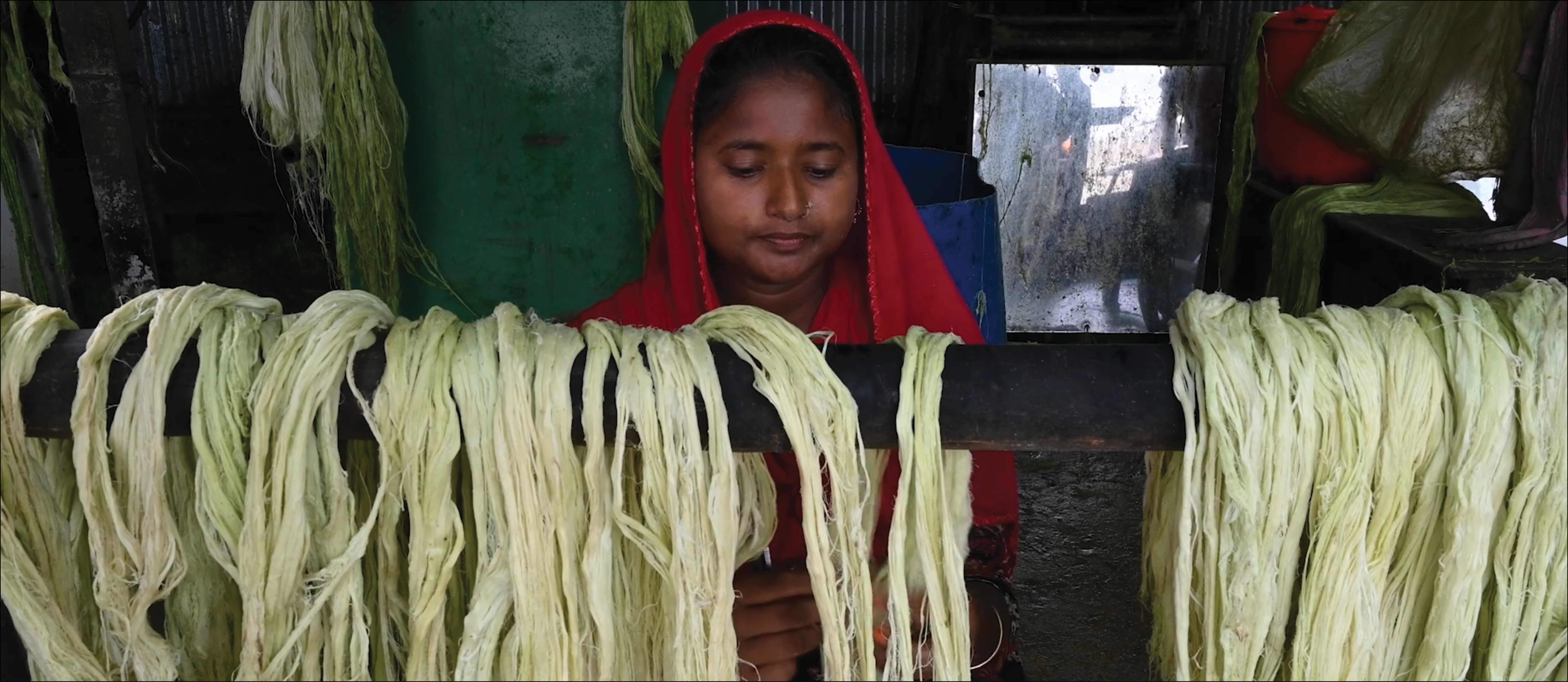Ananas Anam: Wearable Waste

Fast fashion has gone through a period of rapid growth in the last fifty years. The sector is responsible for an estimated 10% of greenhouse gas emissions, and uses around 93 billion cubic meters of water per year - or 4% of all freshwater extraction globally. This is set to double by 2030. Ananas Anam is transforming pineapple waste into eco-friendly textiles, addressing both agricultural waste and fast fashion's environmental impact. With pineapple production generating 25 million tonnes of waste annually, Ananas Anam's innovative use of discarded leaves to create natural textiles, Piñatex and Piñayarn, presents a sustainable solution. Piñayarn is a compostable yarn, while Piñatex serves as an eco-friendly leather alternative, eliminating the need for the harmful chemicals used in traditional tanning processes. This initiative not only reduces CO2 emissions by avoiding leaf burning but also supports rural farming communities in Bangladesh, promoting a circular economy in textile production. Ananas Anam's approach demonstrates how resource reuse can lead to sustainable development beyond just fashion trends.
- Các thể loại Sinh thái & Môi trường
- Đạo diễn RE:TV
- Sản xuất bởi RE:TV
- Trong thời gian 7 Nhiều phút
- Quốc gia Vương quốc Anh
- Năm 2023
Chiếu tại
- Bangladesh
- Ai Cập
- Ấn Độ
- Namibia
- Philippines
- Sri Lanka
- Thái Lan
- Việt Nam
- Myanmar